
The Schaff–Herzog Encyclopedia of Religious Knowledge is a religious encyclopedia. It is based on an earlier German encyclopedia, the Realencyklopädie für protestantische Theologie und Kirche. Like the Realencyklopädie, it focuses on Christianity from a primarily Protestant point of view. The final edition, titled The New Schaff–Herzog Encyclopedia of Religious Knowledge, was published 1908–14 in 13 volumes, based on the third edition of the Realencyklopädie (1896–1909).

Charles Augustus Briggs, American Presbyterian scholar and theologian, was born in New York City, the son of Alanson Briggs and Sarah Mead Berrian. He was excommunicated from the Presbyterian Church for heresy due to his liberal theology regarding the Bible.

Robert Dick Wilson, PhD, DD was an American linguist and Presbyterian Old Testament scholar who devoted his life to prove the reliability of the Hebrew Bible. In his quest to determine the accuracy of the original manuscripts, Wilson learned 45 languages, including Hebrew, Aramaic, and Greek, as well as all the languages into which the Scriptures had been translated up to 600 AD.
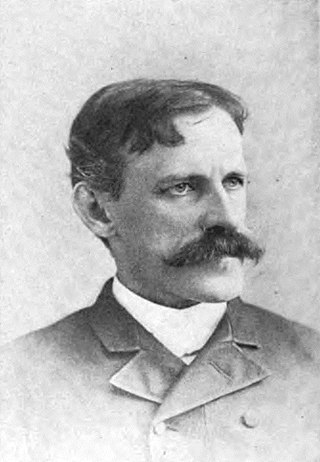
William Elliot Griffis was an American orientalist, Congregational minister, lecturer, and prolific author.
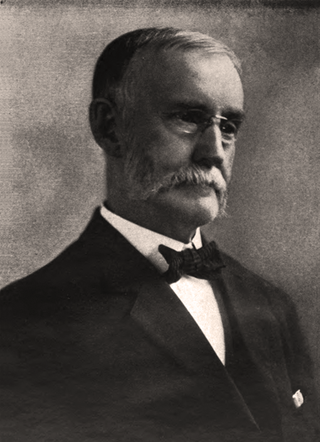
James Russell Miller was a popular Christian author, Editorial Superintendent of the Presbyterian Board of Publication, and pastor of several churches in Pennsylvania and Illinois.
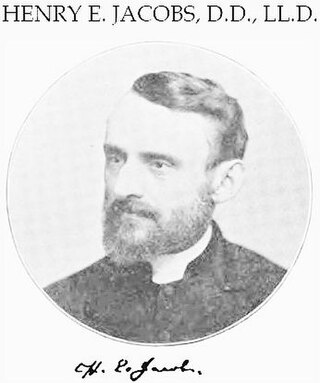
Henry Eyster Jacobs was an American religious educator, Biblical commentator and Lutheran theologian.

George Frederick Wright was an American geologist and a professor at Oberlin Theological Seminary, first of New Testament language and literature, and then of "harmony of science and revelation". He wrote prolifically, publishing works in geology, history, and theology. Early in his career he was an outspoken defender of Darwinism, and later in life he emphasised his commitment to a form of theistic evolution.

Charles Porterfield Krauth was a pastor, theologian and educator in the Lutheran branch of Christianity. He is a leading figure in the revival of the Lutheran Confessions connected to Neo-Lutheranism in the United States.
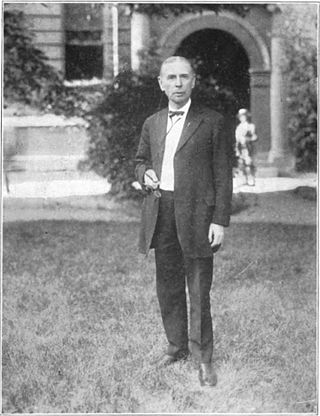
Franz August Otto Pieper was a Confessional Lutheran theologian who also served as the fourth president of the Lutheran Church – Missouri Synod, known at that time as the German Evangelical Lutheran Synod of Missouri, Ohio, and Other States.

The Lutheran Theological Seminary at Philadelphia (LTSP) was one of eight theological seminaries associated with the Evangelical Lutheran Church in America, the largest Lutheran denomination in North America. It is located on Germantown Avenue in the Mount Airy neighborhood of northwestern Philadelphia. Founded in 1864, it has its roots in the Pennsylvania Ministerium established in 1748 in Philadelphia by Henry Melchior Muhlenberg.

John Christian Frederick Heyer was the first missionary sent abroad by Lutherans in the United States. He founded the Guntur Mission in Andhra Pradesh, India. "Father Heyer" is commemorated as a missionary in the Calendar of Saints of the Evangelical Lutheran Church in America on November 7, along with Bartholomaeus Ziegenbalg and Ludwig Ingwer Nommensen.
Beale Melanchthon Schmucker was an American Lutheran leader, liturgical scholar and historian.
The General Council of the Evangelical Lutheran Church in North America, or, in brief, the General Council was a conservative Lutheran church body, formed as a reaction against the new "Americanized Lutheranism" of Samuel Simon Schmucker and the Evangelical Lutheran General Synod of the United States of North America.
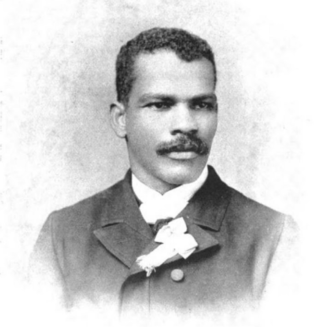
Ernest A. Lyon was an African-American minister, educator and diplomat.
Charles William Schaeffer was a Lutheran clergyman and theologian of the United States.
John Thomson Faris was an American editor, author, and clergyman. Faris was born in Cape Girardeau, Missouri, son of William Wallace Faris, D.D. and Isabella Hardy Thomson. He was married twice: first to Clara Lee Carter. They had three daughters, including writer Bethann Beall Faris Van Ness. Then in 1936 he married Cora Lynn (Shaffner) Cooke.

The Reverend Samuel Merrill Woodbridge, D.D., LL.D. was an American clergyman, theologian, author, and college professor. A graduate of New York University and the New Brunswick Theological Seminary, Woodbridge preached for sixteen years as a clergyman in the Reformed Church in America.
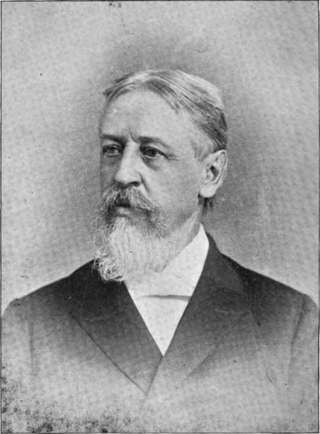
Reverend George Creider Heckman D.D., LL.D was a Presbyterian minister and the ninth president of Hanover College serving from 1870 to 1879.
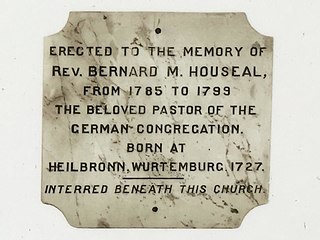
Reverend Bernard Michael Houseal was a German Lutheran minister in North America, and the first resident minister of Frederick, Maryland. He preached at the Evangelical Lutheran Church of Frederick, Maryland (1752) and was the first German minister of Little Dutch Church in Halifax, Nova Scotia. He was a Loyalist refugee who escaped New York with his family and slaves.
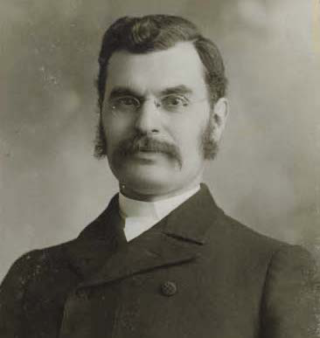
Andrew Constantinides Zenos was a Presbyterian minister, author, translator, professor, and lecturer. He spoke eleven languages including Greek, Latin, and Hebrew. He wrote a large number of books about theology. He spent most of his career at McCormick Theological Seminary in Chicago. He was dean of the institution from 1920 to 1934. He is one of three notable Greek-American ministers in the United States during the 19th century. The other two were abolitionists John Celivergos Zachos and Photius Fisk. He frequently lectured across the United States.
















